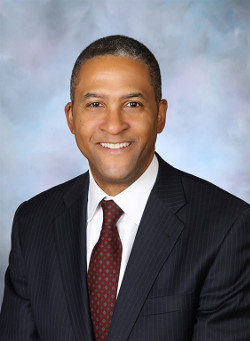 Held by Circuit Judges Raymond Lohier (Obama appointee, pictured at right) and Cormac Carney (Dubya appointee) and District Judge Jed Rakoff (Clinton appointee) in Morales-Santana v. Lynch, No. 11-1252-ag (2nd Cir., 2015). Ironically, given the effects this may have in Canada, Lohier himself was born in Montreal. In the opinion, released on Wednesday, Lohier wrote:
Held by Circuit Judges Raymond Lohier (Obama appointee, pictured at right) and Cormac Carney (Dubya appointee) and District Judge Jed Rakoff (Clinton appointee) in Morales-Santana v. Lynch, No. 11-1252-ag (2nd Cir., 2015). Ironically, given the effects this may have in Canada, Lohier himself was born in Montreal. In the opinion, released on Wednesday, Lohier wrote:
Petitioner Luis Ramon Morales‐Santana seeks review of a Board of Immigration Appeals (“BIA”) decision denying his motion to reopen his removal proceedings to evaluate his claim of derivative citizenship. Under the statute in effect when Morales‐Santana was born, Immigration and Nationality Act of 1952, §§ 301(a)(7), 309(a), (c) (codified at 8 U.S.C.§§ 1401(a)(7), 1409(a), (c) (1952)), Morales‐Santana’s father satisfied the physical presence requirements for transmitting citizenship applicable to unwed citizen mothers but not the more stringent requirements applicable to unwed citizen fathers. On appeal, Morales‐Santana argues principally that this statutory scheme violates the Fifth Amendment’s guarantee of equal protection, and that the proper remedy is to extend to unwed fathers the benefits unwed mothers receive under the statute. We agree and hold that Morales‐Santana derived citizenship at birth through his father.
It seems this ruling (if upheld on appeal) could retroactively extend U.S. citizenship to a large number of people who previously believed — and may even have confirmed with lawyers & consular officers — that they were non-citizens and would remain so for life unless they took the voluntary steps of immigrating to the U.S. and naturalising there. This includes people who do not live in the United States, and who would thus be caught in the net of FATCA and citizenship-based taxation. Who exactly will be affected? Detailed attempt at an answer after the jump.
(Update: for those of you who don’t like PDFs, the folks over at Findlaw.com have posted the opinion as an HTML page.)




